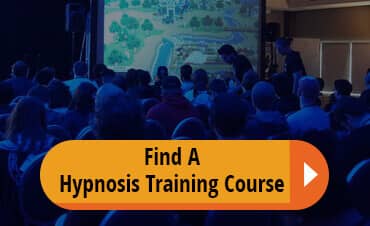
In this article, this week’s guest contributor – coach and Hypnotherapist Marco Nisida – explains why curiosity makes you a better hypnotherapist.
You’re with a subject.
They’re describing how overwhelmed and hopeless they feel about the issue they have come to you for.
The more they talk about it, the more it starts to feel real to you.
So much so, you begin to get sucked into their story and start to even doubt your ability to solve their problem.
Your subject has become so good at reinforcing their problem over and over again, that their natural defense against yours frames, thoughts and suggestions only creates stronger negative hypnotic stories each time.
In other words, you’ve just been hypnotized by them. Your subject has presented their problem so strongly that you begin to buy into their reality of no-possibilities.
When this happens, the session starts to descend down a rabbit hole of frustration and failure, until the point where you’re no longer of any service to your subject.
Sound familiar?
If the answer to this is “unfortunately yes”… fear not, as there is a strategy that never fails when it comes to setting a hypnotherapy session for success.
That “strategy” is to leverage your own curiosity.
Here’s why…
When you’re curious you start asking questions. And in doing so, you start to open your subject’s mind up to infinite possibilities.
And as the hypnotherapist, your curiosity frees you from your own mental constraints set by your need to find a quick solution.
As when your focus is directed towards finding a quick solution – rather than taking the time to understand the root cause of the problem – you quite often miss the easiest and most effective solution.
Genuine curiosity will naturally help you to:
- understand the parameters of the problem
- investigate and understand the root cause of the issue
- discover the frames, assumptions, thoughts, contexts, implications and conclusions your subject had to make in order to sustain the problem
- understand the mental and the emotional processes your subject follows in order to constantly recreate and reinforce problematic conclusions
- remove the pressure to be “great” or to ask the “right” questions – as instead, you’ll just follow your natural curiosity (which can lead to some serious mind bending moments!)
In fact, when you’re genuinely curious you cannot help but ask powerful questions that naturally help you to use the PCAT Formula by:
- identifying the real parameters of the problem
- bypassing the critical factor
- activating an unconscious response
- accessing resources
- transforming and testing
Think of it this way…
Imagine you’re a fireman and your subject is trapped in a room in a burning skyscraper.
Now, imagine this building having thousands of rooms and doors.
How could you possibly help them if you don’t understand exactly which room your subject is in?
You might end up trying to force doors that won’t open or simply losing time entering the wrong rooms. And as there are so many of them, perhaps the building will burn before you’re able to find your subject?
Now imagine how much easier it would be to rescue them if you used a walkie-talkie to communicate so that you could ask them questions to help locate them?
Wouldn’t it be much easier and more effective?
Your “walkie talkie” in hypnotherapy is your curiosity.
It’s your ability to ask powerful questions to help you find a solution. And isn’t this what a mind bending moment is all about? The ability to transport someone from a position of no-possibilities to infinite possibilities?
I know that it may sound counterintuitive, but the more you try to solve a problem, often the less you’re able to.
Or in other words, the more you try to be the “best” hypnotist – the further away from the holy grail you move …(aka the solution). (And this really relates to most things in life… doesn’t it?)
So with this in mind, genuine curiosity takes the pressure off while providing you with the best tools (curiosity-driven questions) to naturally solve problems by looking where nobody else – including your subject – does.
So before starting your next hypnotherapy session, remind yourself to resist the urge to push consciously what should be happening unconsciously – simply by taking the time to ask questions.
Try it.
This article has been inspired by Igor Ledochowsk to such an extent that I would strongly suggest anybody interested in becoming a better hypnotherapist to study Igor’s Mind Bending Language programs as they have been an immense value for myself and my clients.









![[ADVANCED GUIDE] How To Master Hypnotic Regression Therapy - Part I: Essential Principles To Profoundly Transform Your Subject’s Emotional Trauma [ADVANCED GUIDE] How To Master Hypnotic Regression Therapy - Part I: Essential Principles To Profoundly Transform Your Subject’s Emotional Trauma](https://hypnosistrainingacademy.com/wp-content/uploads/2016/09/hypnotic-regression-therapy-essential-principles.jpg)
![Yogic Breathing For Hypnosis: 3 Easy Techniques To Ground & Relax Your Clients Before Inducing A Hypnotic Trance [Includes Infographic] Yogic Breathing For Hypnosis: 3 Easy Techniques To Ground & Relax Your Clients Before Inducing A Hypnotic Trance [Includes Infographic]](https://hypnosistrainingacademy.com/wp-content/uploads/2019/05/yogic-breathing-for-hypnosis.jpg)


